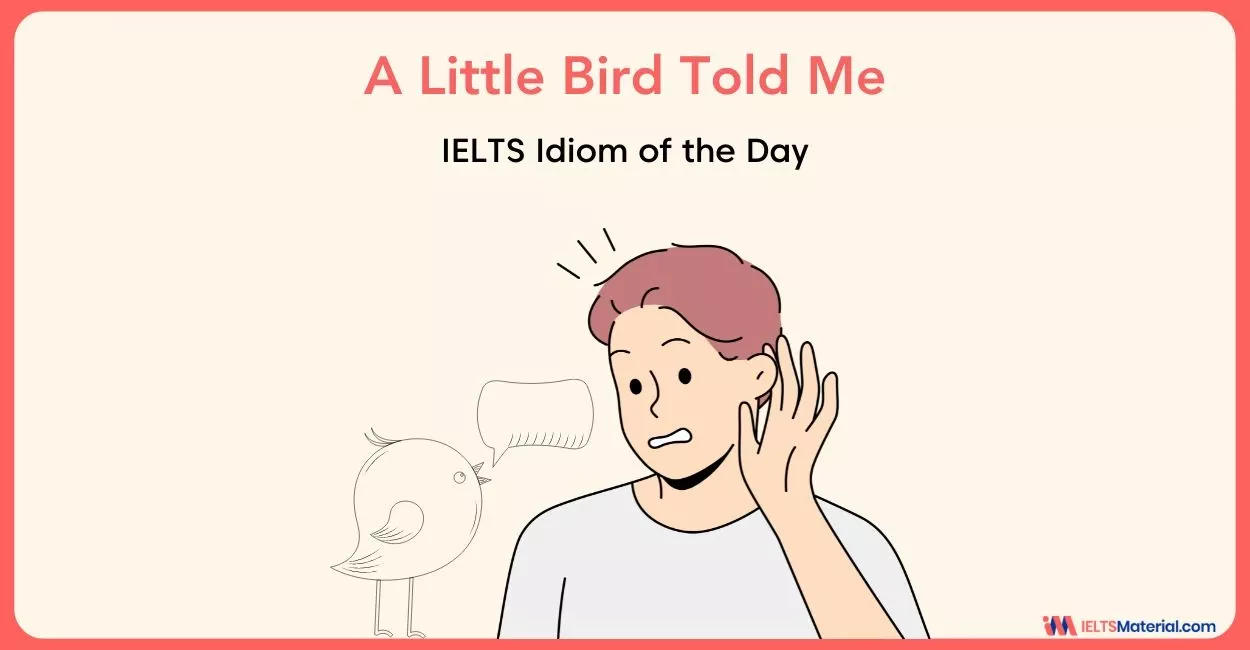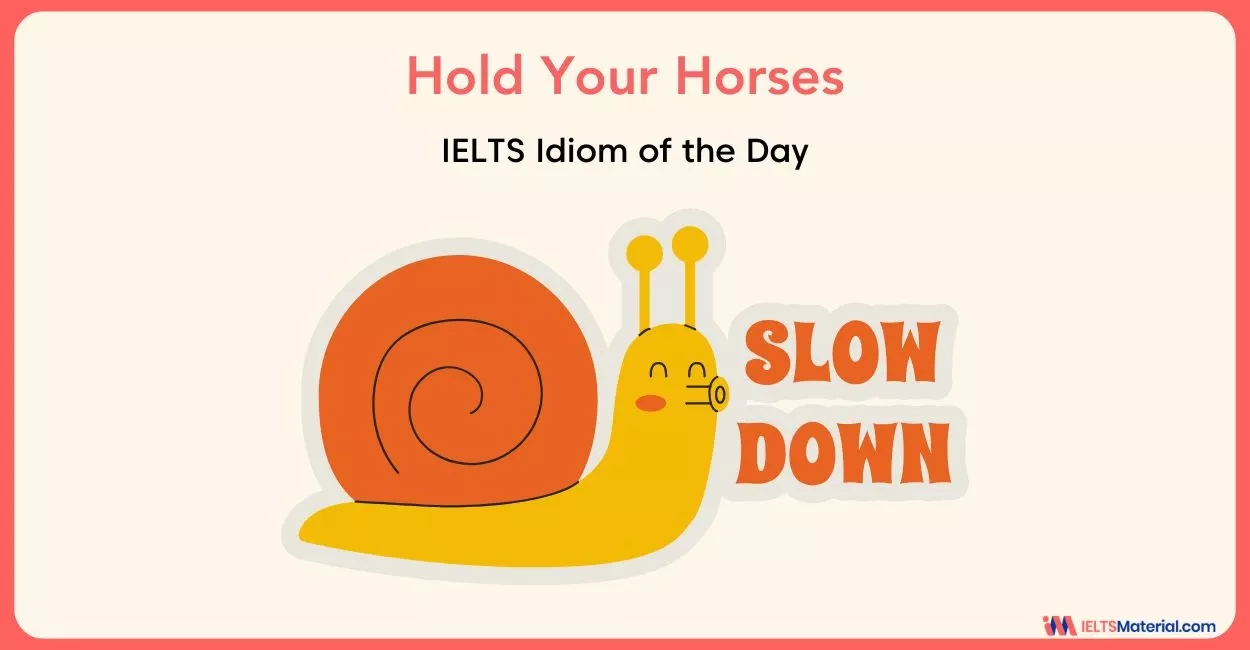Check out other Idioms
Below the Belt Idiom: Meaning, Origin, Usage & Exercises
Some actions don’t just hurt; they cross an invisible line of fairness. The idiom ‘below the belt’ is used precisely for such moments. Whether in arguments, competition, politics, or personal relationships, this expression highlights unfair, cruel, or unethical behaviour, especially when someone takes advantage of another person’s weakness. This blog will discuss the meaning, history, usage, synonyms, IELTS-specific applications of the idiom ‘below the belt’ and exercises to help you use it naturally and appropriately and boost your IELTS vocabulary. Below the Belt Idiom: Meaning The idiom ‘below the belt’ refers to an action, comment, or tactic that is unfair, inappropriate,...

5 min read
Updated On
Stabbed in the Back Idiom: Meaning, Origin, Usage & Exercises
Few idioms capture betrayal and emotional shock as vividly as ‘stabbed in the back’. It is one of the common idioms to boost your IELTS score – topic: deception that immediately suggests trust being broken in a sudden, painful way, often by someone unexpected. In this blog, we will explore the meaning, origin, and usage of the idiom ‘stabbed in the back’ and provide examples from IELTS. Stabbed in the Back Idiom: Meaning The idiom ‘to be stabbed in the back’ means to be betrayed, deceived, or harmed by someone you trusted, especially when the act is secretive or unexpected. Unlike open...

5 min read
Updated On
A Hot Potato Idiom: Meaning, Origin, Usage & Exercises
The idiom ‘a hot potato’ is one of those useful idioms for IELTS Speaking to score Band 8.0+ that almost makes you feel the discomfort it describes. Just like a freshly cooked potato that is too hot to hold, this idiom refers to a sensitive, controversial, or risky issue that people want to avoid handling for long. This blog explores the definition, history, and application of the idiom ‘a hot potato’ in relation to the IELTS, providing practice questions to help you solidify your knowledge. A Hot Potato Idiom: Meaning The idiom ‘a hot potato’ refers to a problem or topic that...

5 min read
Updated On
Don’t Put All Your Eggs in One Basket Idiom: Meaning, Origin, Usage & Exercises
Some idioms feel almost like life advice disguised as language, and ‘don’t put all your eggs in one basket’ is a perfect example. This expression warns against overdependence on a single option, whether in money, career, education, or personal choices. In this blog post, we will explore the meaning, origin, and usage of the idiom ‘don't put all your eggs in one basket’, one of the useful idioms for IELTS Speaking to score band 8.0+. We will also include exercises to reinforce your understanding. Don’t Put All Your Eggs in One Basket Idiom: Meaning The idiom ‘don't put all your eggs...

6 min read
Updated On
Have One's Cake and Eat it (Too) Idiom: Meaning, Origin, Usage & Exercises
The idiom ‘have one’s cake and eat it (too)’ points to a common human desire: wanting two incompatible advantages at the same time. This expression is especially useful in academic writing, debates, and IELTS answers because it highlights logical inconsistency, unrealistic expectations, and flawed decision-making. This blog examines the meaning, origin, and IELTS-specific usage of the idiom 'have one’s cake and eat it (too)', including exercises to reinforce your understanding and boost your IELTS vocabulary. Have One's Cake and Eat it (Too) Idiom: Meaning The idiom 'have one’s cake and eat it (too)’ means wanting to enjoy the benefits of two...

6 min read
Updated On
Wag the Dog Idiom: Meaning, Origin, Usage & Exercises
In public debates, media discussions, and even everyday conversations, people often question who is really in control. The idiom ‘wag the dog’ is especially powerful because it challenges assumptions about power and influence. It is one of the useful idioms for IELTS Speaking to score Band 8.0+ that highlights situations where something small, secondary, or less important controls something far bigger. Thus, this blog examines the meaning, origin, and specific usage of the idiom 'wag the dog' in the context of IELTS, along with exercises to reinforce your understanding. Wag the Dog Idiom: Meaning The idiom ‘wag the dog’ means a situation...

5 min read
Updated On
Run Around like a Headless Chicken Idiom: Meaning, Origin, Usage & Exercises
In fast-paced modern life, many people confuse being busy with being productive. The idiom ‘run around like a headless chicken’ captures this confusion perfectly. It paints a vivid picture of frantic movement without logic, planning, or results. This blog will discuss the meaning, history, usage, synonyms, IELTS-specific applications of the idiom ‘run around like a headless chicken’ and exercises to help you use it naturally and appropriately, and learn how to use idioms in IELTS Speaking for a higher score. Run Around like a Headless Chicken Idiom: Meaning The idiom ‘run around like a headless chicken’ means to behave in a...

5 min read
Updated On
Lower the Bar Idiom: Meaning, Origin, Usage & Exercises
The idiom ‘lower the bar’ is often used when expectations quietly shift downward - sometimes for practical reasons, and sometimes as a sign of declining standards. Unlike motivational expressions that push people to aim higher, this idiom captures the opposite movement. This blog will discuss the meaning, history, usage, synonyms, IELTS-specific applications of the idiom ‘lower the bar’, and exercises to help you use it naturally and appropriately and boost your IELTS vocabulary. Lower the Bar Idiom: Meaning The idiom ‘lower the bar’ means: to reduce standards, requirements, or expectations to make a goal easier to reach than before It often...

4 min read
Updated On
At Sixes and Sevens Idiom: Meaning, Origin, Usage & Exercises
The idiom ‘at sixes and sevens’ is one of those expressions that instantly paints a vivid picture of disorder, confusion, or chaos. Whether someone is overwhelmed by a messy room, an unpredictable project, or an emotional conflict, this idiom captures the feeling of being completely out of order. In this blog post, we will explore the meaning, origin, and usage of the idiom ‘at sixes and sevens’, one of the common idioms in IELTS Speaking, and take up exercises to cement your understanding. At Sixes and Sevens Idiom: Meaning The idiom ‘at sixes and sevens’ means: to be in a state...

6 min read
Updated On
A Little Bird Told Me Idiom: Meaning, Origin, Usage & Exercises
The idiom ‘A little bird told me’, also ‘A Little Birdie Told Me’ is often used to hint that one has received information from a secret or undisclosed source. It adds a layer of mystery, playfulness, or secrecy to a conversation - just like a whisper from an invisible messenger. It is one of the common idioms in IELTS Speaking and Writing that reflects linguistic sophistication and cultural understanding. This blog will discuss the meaning, history, usage, synonyms, IELTS-specific applications of the idiom ‘a little bird told me’, and exercises to help you use it naturally and appropriately and boost your IELTS vocabulary....

6 min read
Updated On
Have A Sinking Feeling Idiom: Meaning, Origin, Usage & Exercises
Language has a unique way of capturing emotions through expressions like idioms. One such powerful yet common idiom in IELTS Speaking is ‘have a sinking feeling’. Unlike simple words such as ‘fear’ or ‘anxiety’, the idiom paints a mental picture of a person metaphorically ‘sinking’ inside, which makes the emotion far more relatable. Therefore, understanding this idiom not only enhances everyday communication but also strengthens writing, especially for IELTS learners aiming for higher band scores. In this blog post, we will explore the meaning, origin, and usage of the idiom ‘have a sinking feeling’ and provide examples from the IELTS exam. Have...

5 min read
Updated On
Donkey’s Years Idiom: Meaning, Origin, Usage & Exercises
The idiom ‘donkey’s years’, mainly used in British English, represents the fact that time and memory are at the heart of many idiomatic expressions in English. It conveys the sense of something lasting an extremely long time. Whether you are reminiscing about childhood or describing how long it has been since you met an old friend, this idiom injects humor, relatability, and vivid imagery. In this blog, we will explore the meaning, origin, and usage of the idiom ‘donkey’s years’, one of the useful idioms for IELTS Speaking to score band 8.0+, and provide examples from the IELTS exam. Donkey’s Years...

5 min read
Updated On
Fair-weather Friend Idiom: Meaning, Origin, Usage & Exercises
Friendship is often tested not during good times, but in moments of crisis. The idiom ‘fair-weather friends’ captures a painful but universal truth: some people stay around only when life is easy and enjoyable, but disappear when difficulties arise. Unlike ordinary vocabulary, it paints a vivid picture of conditional friendship. This blog will discuss the meaning, history, usage, synonyms, IELTS-specific applications of the idiom ‘fair-weather friend’, and exercises to help you use it naturally and appropriately and boost your IELTS vocabulary. Fair-weather Friend Idiom: Meaning The idiom ‘fair-weather friends’ refers to people who are supportive and present only during pleasant or...

5 min read
Updated On
Blue Sky Thinking Idiom: Meaning, Origin, Usage & Exercises
The sky, as we know, is an open expanse stretching endlessly. That limitless vision is the inspiration behind the idiom ‘blue sky thinking’. It refers to imaginative, creative ideas that are unconstrained by practicality or limitations. In today’s world of innovation, entrepreneurship, and education, this idiom is particularly powerful. This blog explores the meaning, origin, context, and usage of the expression ‘blue sky thinking’, one of the useful idioms for IELTS Speaking to score band 8.0+, providing exercises and examples to help reinforce the lessons learned. Blue Sky Thinking Idiom: Meaning The idiom ‘blue sky thinking’ means creative, original, and visionary...

5 min read
Updated On
Bull in a China Shop Idiom: Meaning, Origin, Usage & Exercises
Imagine a large bull, wild and uncontrolled, entering a fragile china shop filled with porcelain dishes, cups, and delicate glass items. The destruction would be inevitable. This vivid mental image is the foundation of the idiom ‘bull in a china shop’, used to describe someone clumsy, reckless, or insensitive in delicate situations. In this blog post, we will explore the meaning, origin, and usage of the idiom ‘bull in a china shop’, one of the common idioms in IELTS Speaking, and take up exercises to cement your understanding. Bull in a China Shop Idiom: Meaning The idiom ‘bull in a china...

5 min read
Updated On
Bosom Friend Idiom: Meaning, Origin, Usage & Exercises
Friendship has always been one of the most cherished aspects of human life. While many English idioms describe friends, few capture the depth of intimacy and trust like ‘bosom friend’. This expression highlights a rare connection; someone you confide in, trust wholeheartedly, and share life’s most personal experiences with. Mastering useful idioms for IELTS Speaking to score band 8.0+ like this one, can give your language a sophisticated edge in the IELTS exam. In this blog, we will explore the meaning, origin, and usage of the idiom ‘bosom friend’ and provide examples from IELTS. Bosom Friend Idiom: Meaning The idiom ‘bosom friend’...

5 min read
Updated On
Safe and Sound Idiom: Meaning, Origin, Usage & Exercises
Some idioms endure because they capture something timeless about human experience. The idiom ‘safe and sound is one such phrase. Whether we talk about arriving home after a long trip, surviving a crisis, or completing a risky venture, this idiom offers a comforting sense of closure. In this blog, we will explore the meaning, origin, and usage of the idiom ‘safe and sound’, one of the useful idioms for IELTS Speaking to score band 8.0+, and provide examples from the IELTS exam. Safe and Sound Idiom: Meaning The meaning of the idiom ‘safe and sound’ is to be unharmed, unhurt, and...

4 min read
Updated On
Stir Up A Hornet’s Nest Idiom: Meaning, Origin, Usage & Exercises
Imagine throwing a stone at a hornet’s nest intentionally, followed by the hornets attacking you. The idiom ‘stir up a hornet’s nest’ brings up quite a literal image into our minds, warning that some actions will provoke a fierce backlash. This blog explores the meaning, origin, and IELTS-specific usage of the 'stir up a hornet’s nest’, a common idiom in IELTS Speaking, along with exercises to help you understand it better. Stir Up A Hornet’s Nest Idiom: Meaning The idiom ‘stir up a hornet’s nest’ means to do or say something that provokes strong trouble, anger, controversy, or trouble from other...

5 min read
Updated On
Jumping the Gun Idiom: Meaning, Origin, Usage & Exercises
In life, people often act before the right moment - submitting assignments too early, speaking without full knowledge, or making decisions without proper preparation. English captures this impulsive tendency through the vivid idiom ‘jumping the gun’. Rooted in the world of sports, this phrase, one of the useful idioms for IELTS Speaking to score band 8.0+, has expanded into everyday English, symbolizing impatience, eagerness, or premature action. Therefore, mastering such idioms enhances fluency, strengthens vocabulary, and demonstrates natural command of the language in the IELTS exam. This blog explores the meaning, origin, context, and usage of the expression ‘jumping the gun’,...

5 min read
Updated On
Hold Your Horses Idiom: Meaning, Origin, Usage & Exercises
Have you ever found yourself in a situation where someone is rushing ahead, making a decision too quickly, or getting overly excited about something? It is a common human tendency to act impulsively. In such moments, ‘hold your horses’ is a timeless piece of advice we often turn to, an idiom from the common idioms list for IELTS Speaking that perfectly captures the need to slow down and exercise patience. This blog examines the meaning, history, context, and application of the idiom 'hold your horses,' accompanied by examples and exercises to reinforce the learning. Hold Your Horses Idiom: Meaning The idiom ‘hold...

5 min read
Updated On





















